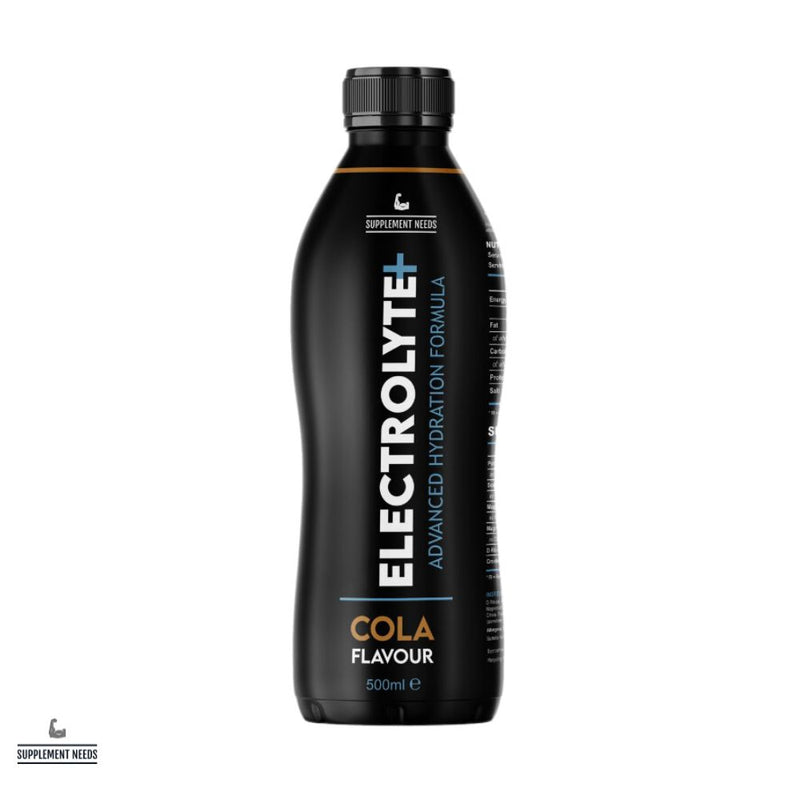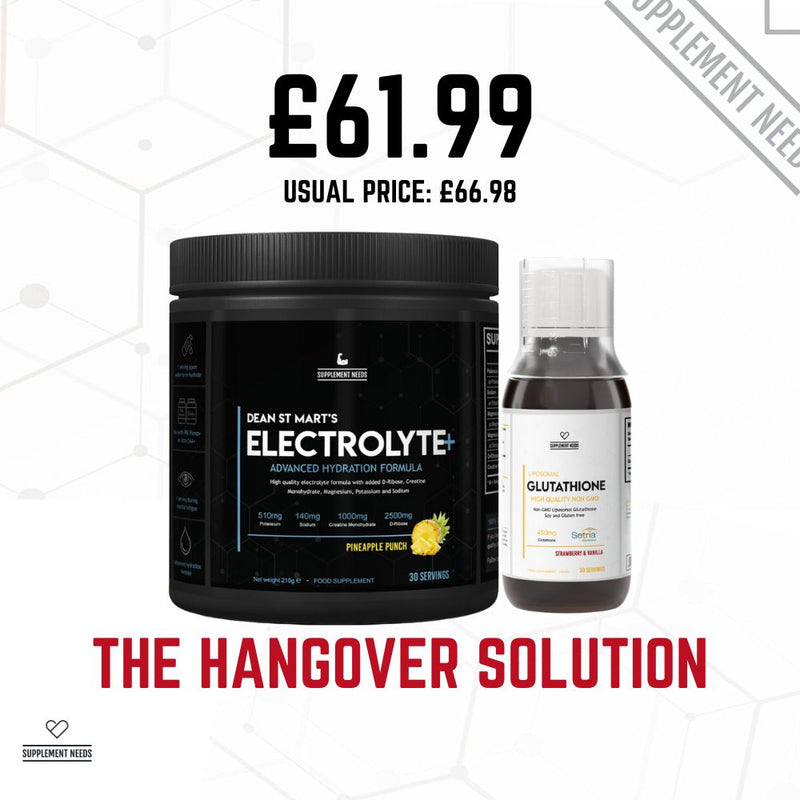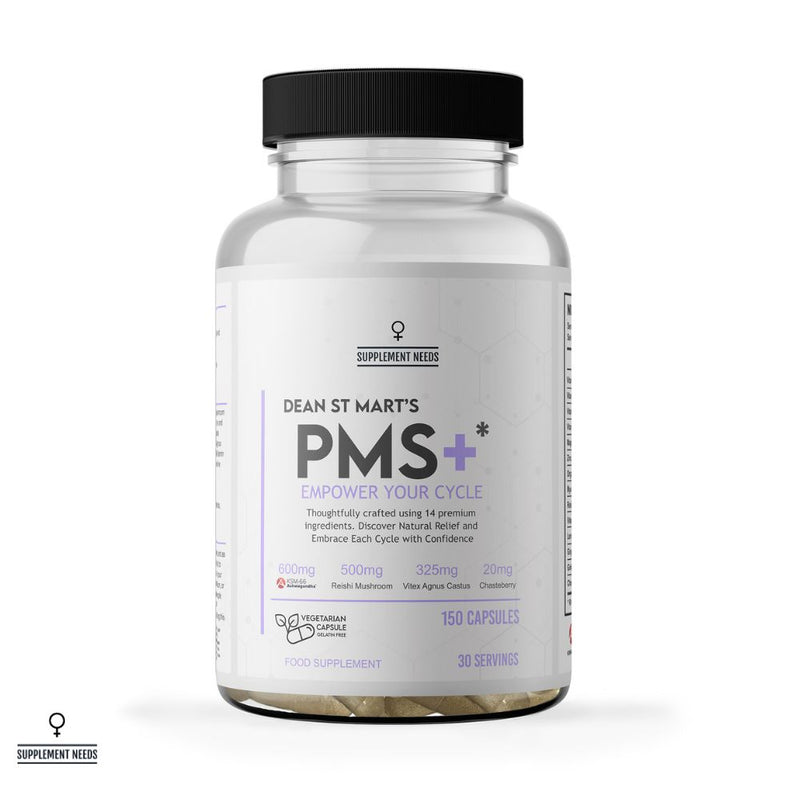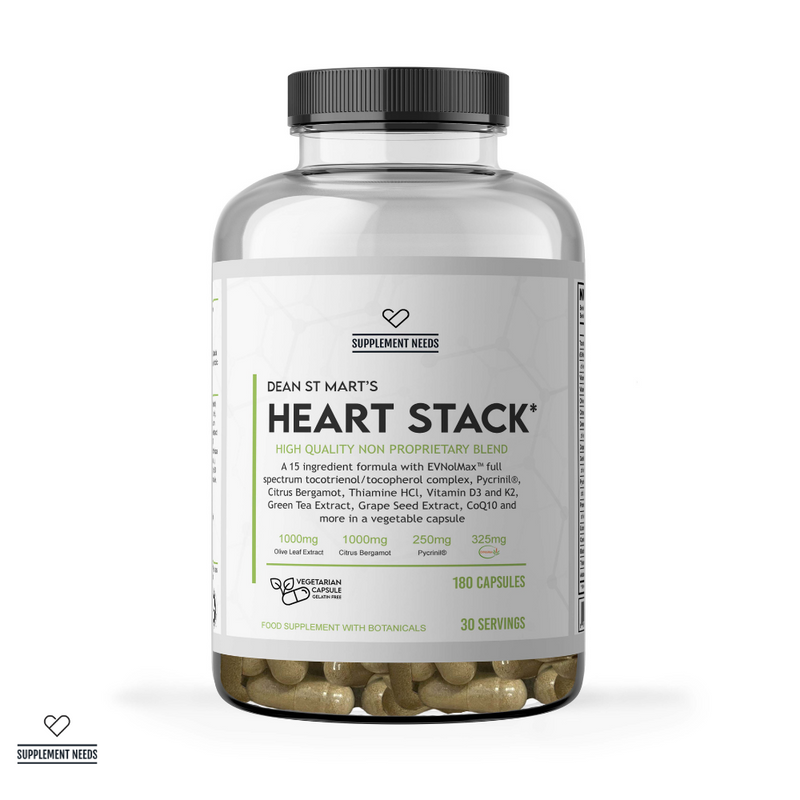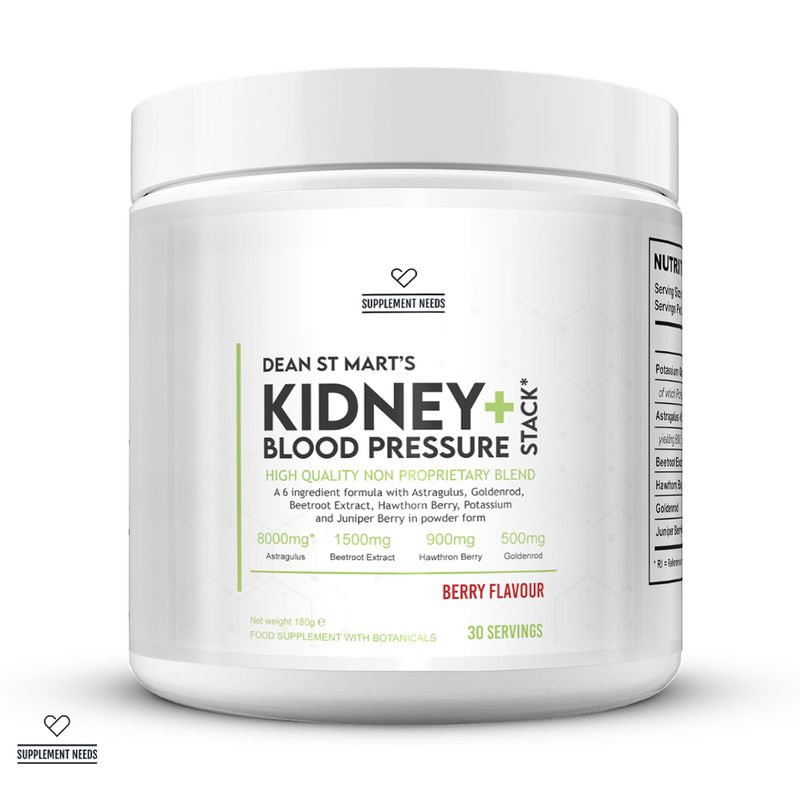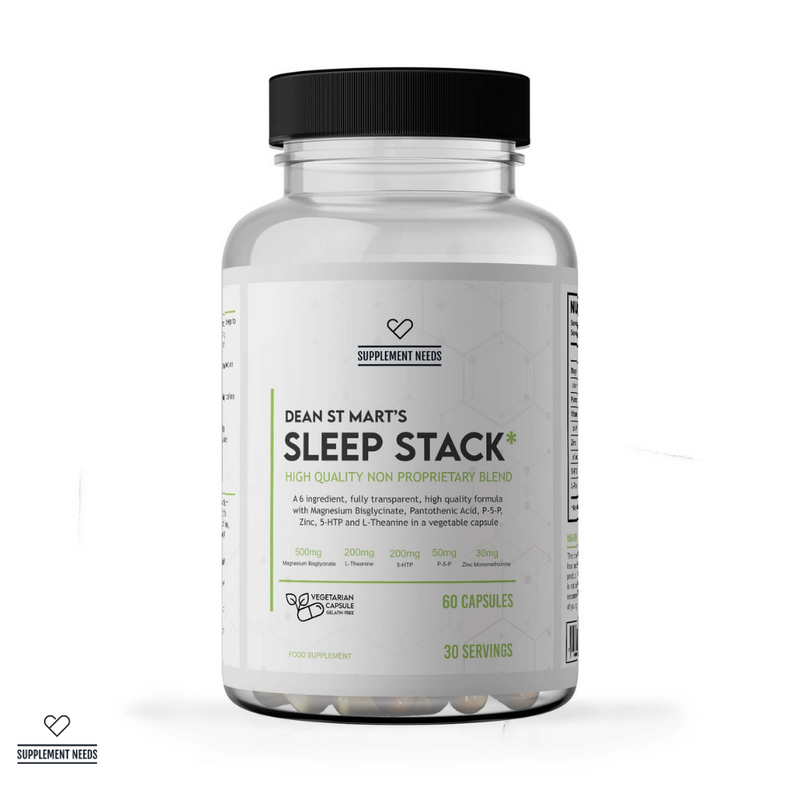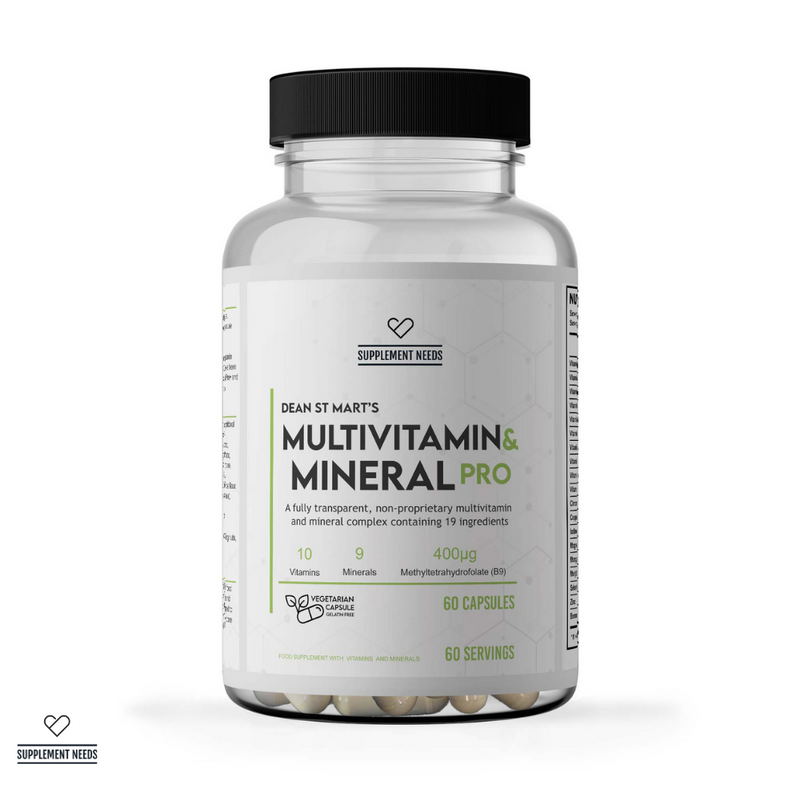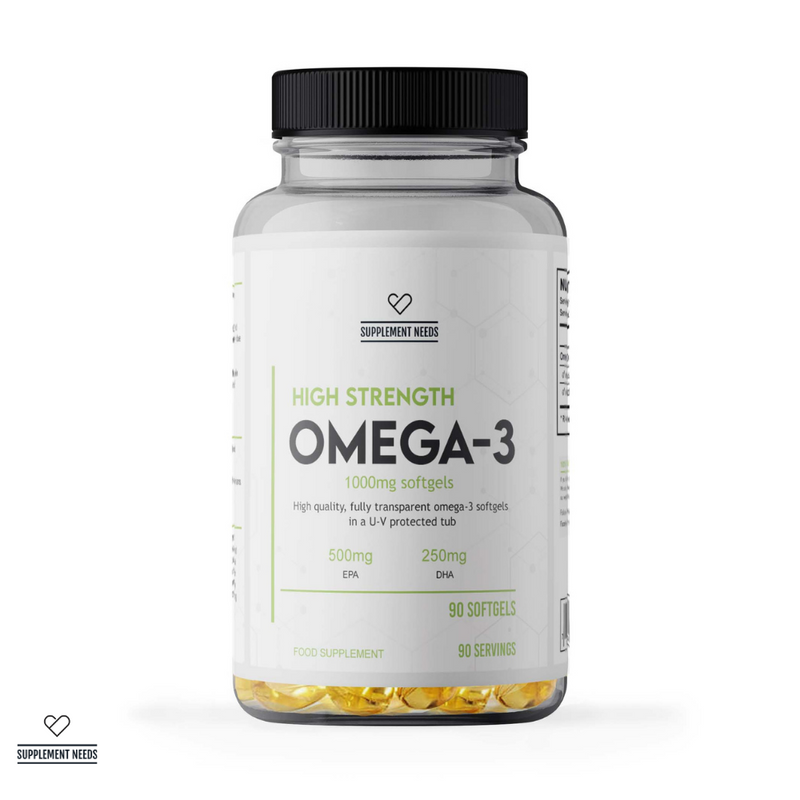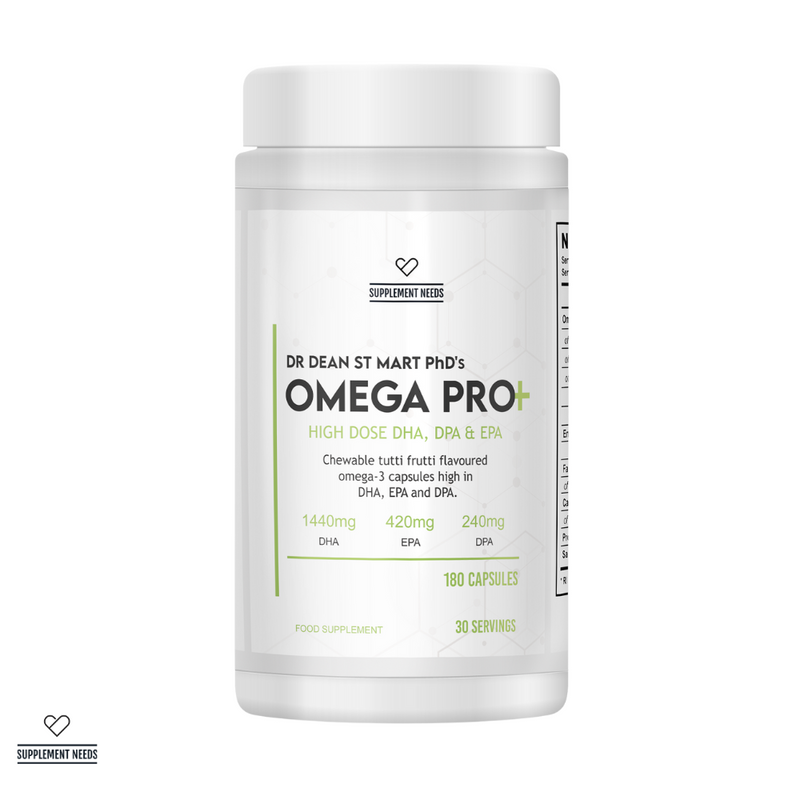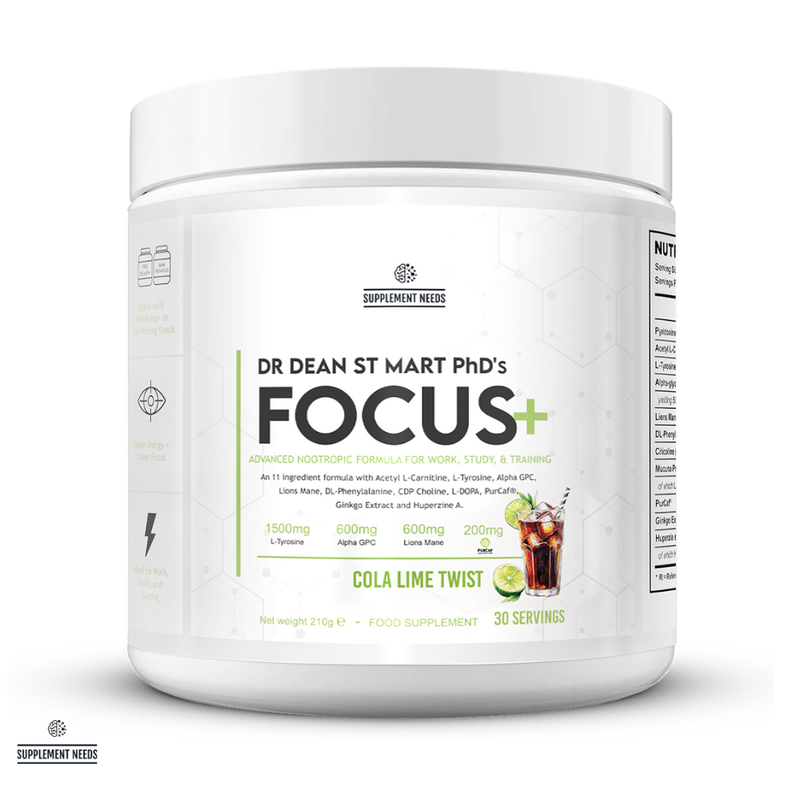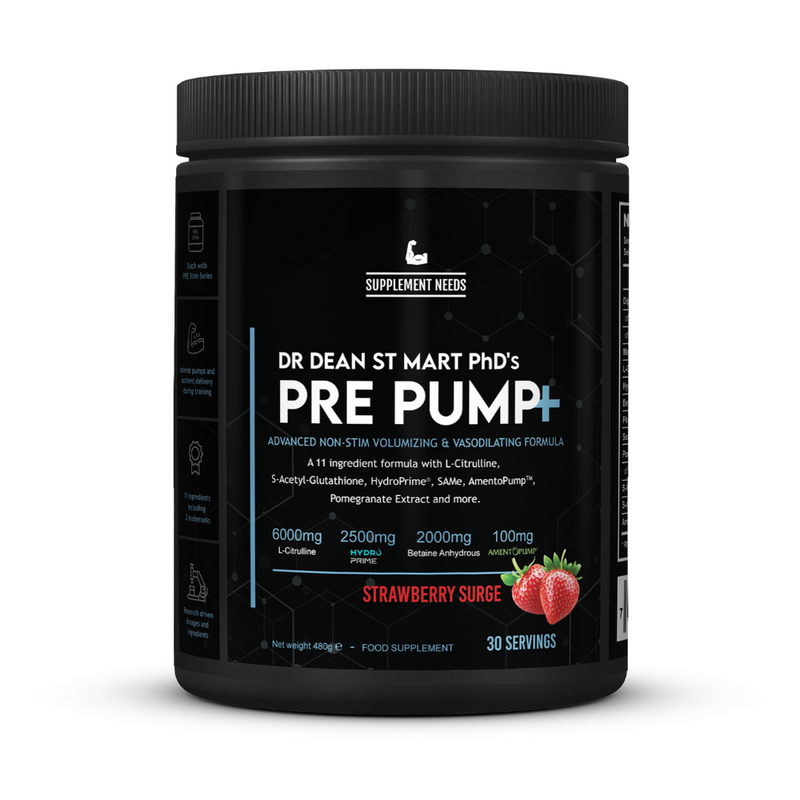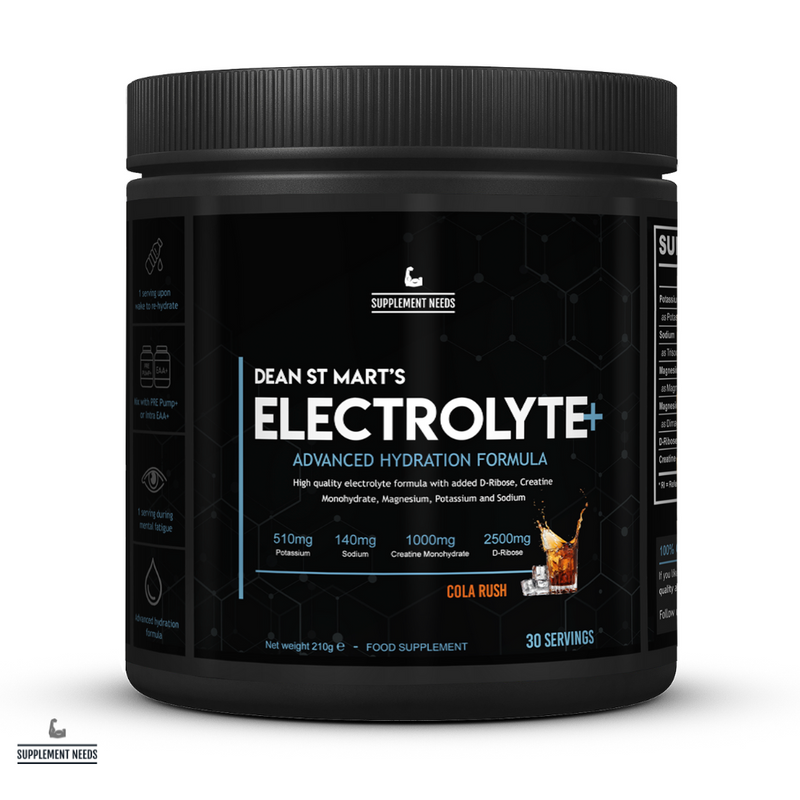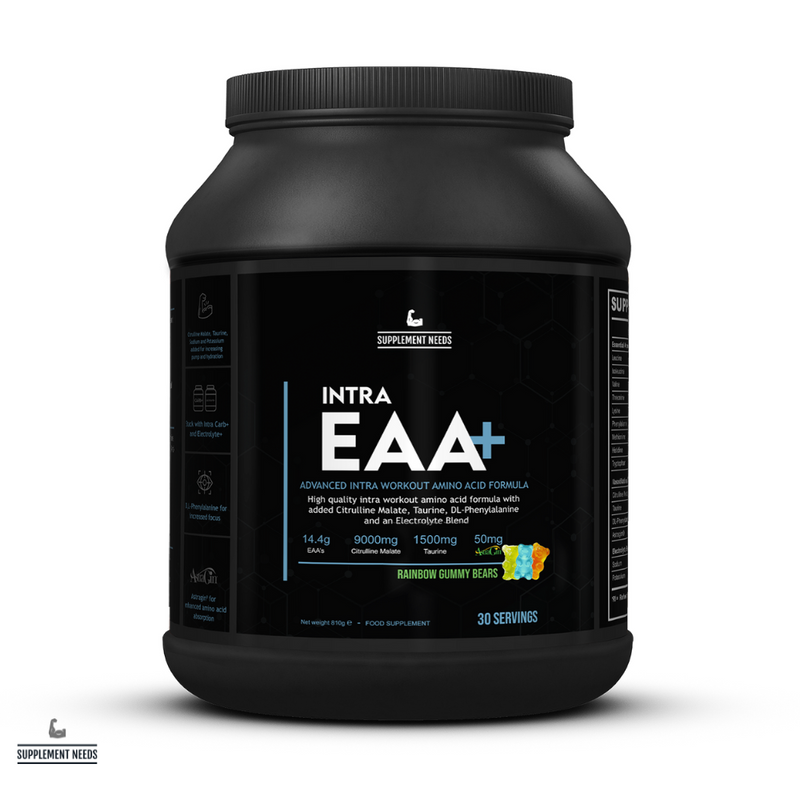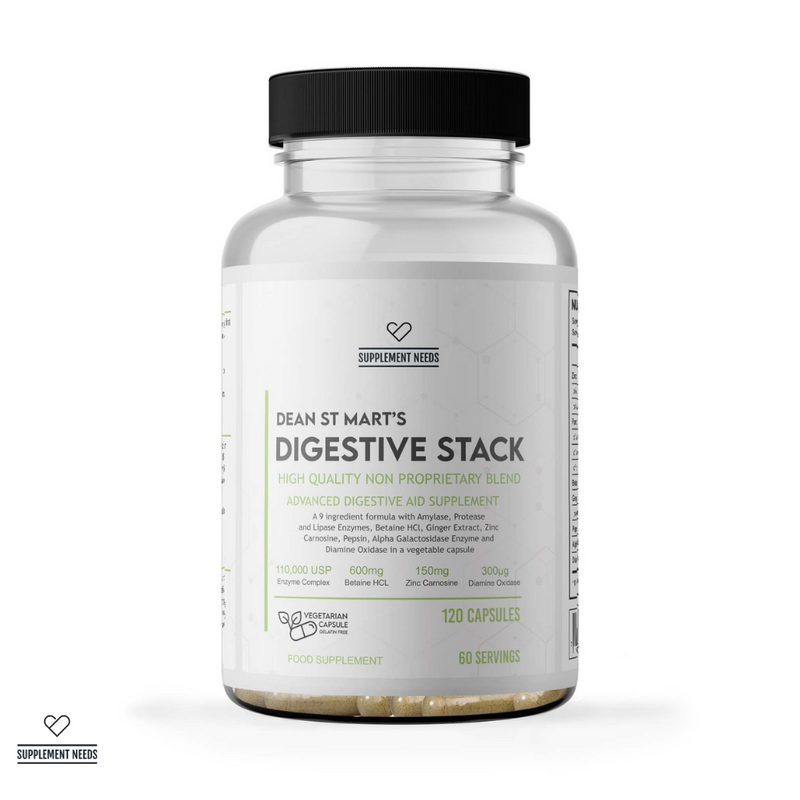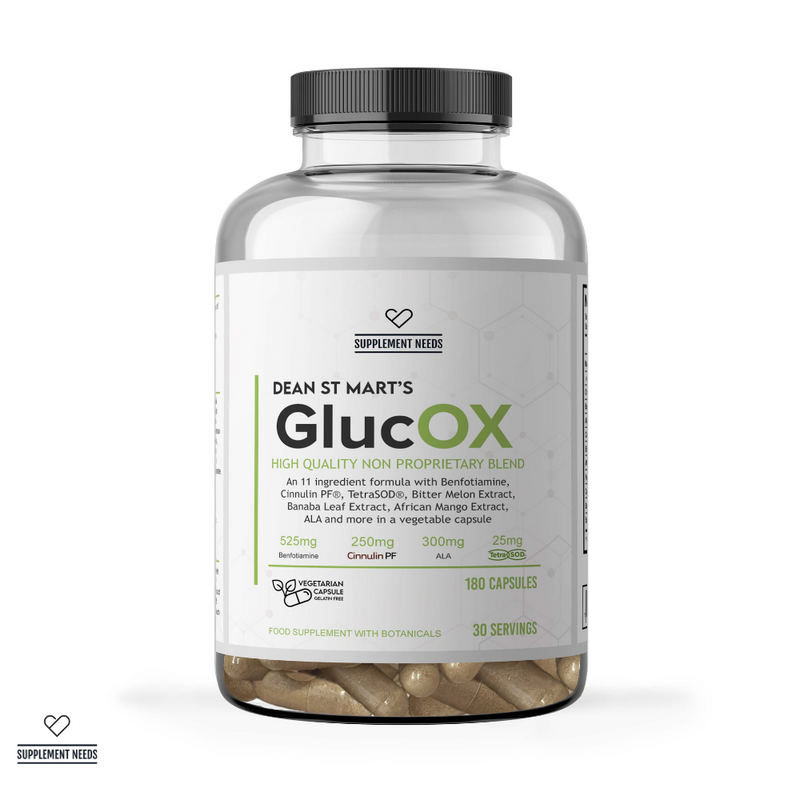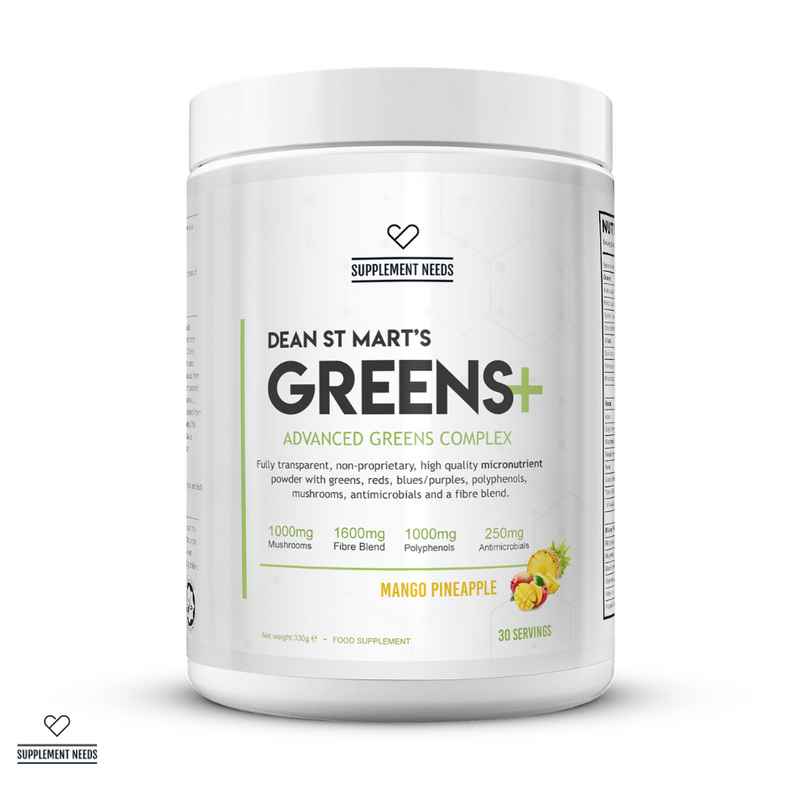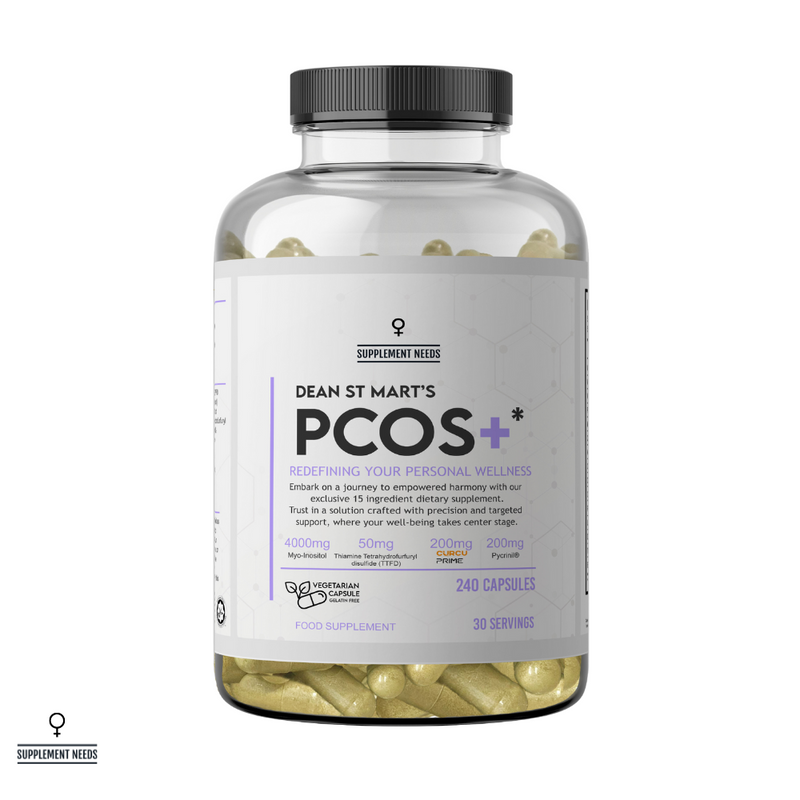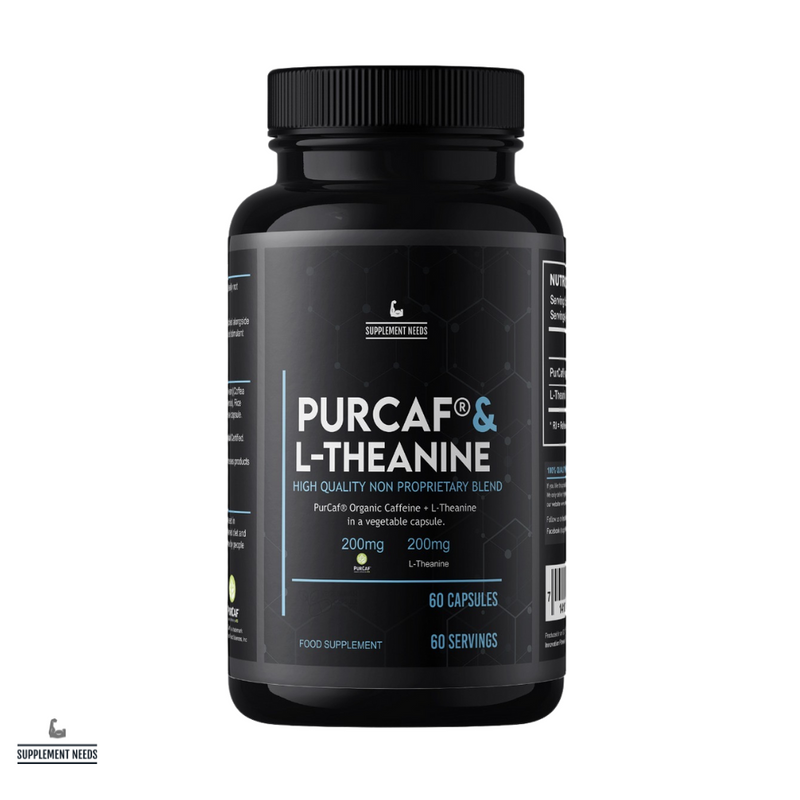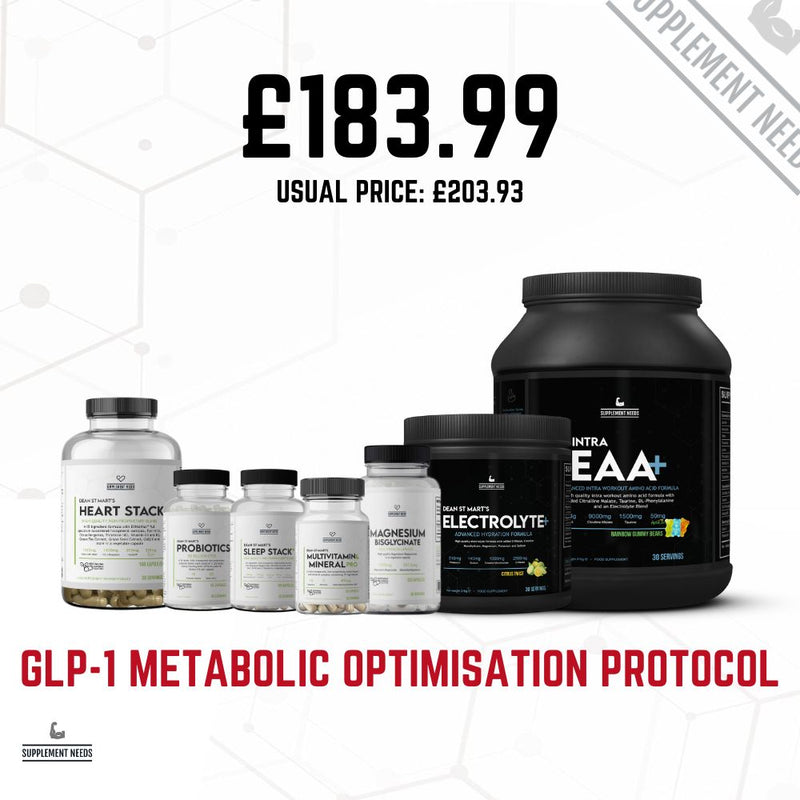40 may be the new 30, but it’s still important to note the transformative journey our bodies embark on at this pivotal age. Aside from staying healthy and active, adding the right supplements to your diet can act as a ‘helping hand’ to keep your body nourished. In this article, we’ll look into the best supplements for women over 40. Keep reading to learn more…
Should you take supplements after 40?
Classically, but informally defined as ‘middle age’, 40 marks a transitional period in many womens’ lives as they begin to experience hormonal and physiological shifts and changes. Yet, at 40, they still have many years ahead of them - the key is to ensure that these years are what scientists refer to as QALYs (Quality-Adjusted Life Years)1. In other words, they are years spent healthy and free from disease or decline.
According to projections based on research gathered from the 2021 census, a woman turning 40 today has an average life expectancy of 87 years2. Better yet, the odds of reaching 100 have also never been better, with the likelihood reaching a 1 in 10 chance.
Life doesn’t end at 40. It begins.
But reaching the quadragenarian milestone comes with a price.
Around the age of 40, many women begin to notice changes in their menstrual cycles and, later, the onset of peri menopause and menopause3.
These changes are marked by fluctuating oestrogen levels, which has an effect on bone metabolism, cardiovascular health, and even mood regulation.
Research indicates that low oestrogen levels can lead to reduced calcium absorption and an increased risk of osteoporosis4. Rising levels of oxidative stress can disrupt both muscle recovery and cognitive function56.
In addition to this, the body’s metabolism naturally declines with age, putting a greater emphasis on the need for a daily food and exercise regime.
If you want to sustain your health as you age, you need to listen to your body, and support it.
Exercise and healthy eating are a great start, but for those looking to get the most out of their bodies for as long as possible, supplements may provide a big boost.
A study published in the British Journal of Nutrition found that even modest improvements in micronutrient intake can lead to significant quality-of-life benefits in midlife7. To quote the study’s conclusion verbatim:
‘UK females and younger adults appear to be particularly vulnerable to micronutrient shortfalls from food sources alone. Clearly, improvements in dietary quality are needed across midlife. Alongside this, fortification and supplementation strategies may be considered to help adults achieve dietary targets at this life-stage when they should be at their nutritional prime’.
With that in mind, what supplements should you consider if you’re a woman in her forties? Let’s take a look…
What are the best supplements for women over 40
What, then, are the ‘best’ supplements for women over 40. We appreciate that it is very much a subjective point, however, there are also fairly substantial evidence bases behind our recommendations. We’ll detail each supplement and their supporting evidence below.
Note: if you have any questions about supplementation, please consult a medical professional.
The fatty acid family
Essential fatty acids are core components of cellular health, contributing not only to cardiovascular and brain function, but also in maintaining supple, hydrated skin and flexible joints89.
You’ve probably already heard of Omega-3 and Omega-6 fatty acids, but it’s worth delving deeper into the roles of Omega-7 and Omega-9 as well.
How can omega supplements help?
Omega-3 fatty acids possess excellent anti-inflammatory properties. They support healthy blood flow, reduce inflammation, and contribute to a calm, well-functioning nervous system.
Omega-6 helps to lower bad cholesterol, and raise good cholesterol levels10. They also can help reduce inflammation, and help maintain healthy blood vessel walls to improve blood flow.
Less commonly covered are Omega-7 fatty acids, which assist in maintaining skin hydration and building healthy mucous membranes11. This is particularly beneficial as natural moisture levels decline with age, impacting skin quality and overall comfort.
It has been shown that Omega-7 can bring about enhanced insulin sensitivity, and improved metabolic profiles12.
Omega-9 fatty acids have been linked to increased physical activity and improved mood13. They also help to regulate blood sugar levels14, contribute to a stronger immune system, and can be beneficial for cognitive function.
Together, this family of Omega fatty acids strengthens overall resilience and vitality.
Our recommendation

Supplement Needs Omega Femme offers a precise blend of all these essential unsaturated fatty acids. In particular, Omega Femme contains unique omega-7 content that is has potential benefits in promoting skin and vaginal hydration.
Derived from sea buckthorn fruit and seed oil, this product offers a rich and diverse fatty acid profile chosen to support cardiovascular, skin, and joint health.
Bone health
Bone health is one of the most important aspects of a healthy body, yet over time their strength starts to diminish. After the age of 40 in women, bone mass and density will begin to decline. As the American Academy of Orthopaedic Surgeons has characterised the situation, ‘Because women have smaller bones with a thinner cortex and smaller diameter, they are more vulnerable to developing osteoporosis’.
Furthermore, the Academy describes how the process of bone ‘remodelling’ declines in women after 40:
‘All through your life, your body is continually removing old bone and replacing it with fresh bone. This process is called remodelling. Up until about age 40, all the bone removed is replaced. After age 40, however, less bone is replaced. At this stage in life, getting enough exercise and Calcium and Vitamin D every day, are crucial to minimising bone loss’15.
Which leads us on nicely to our next section. If you want to maintain bone health after the age of 40, you should consider supplementing your diet with Vitamin D and sources of Calcium.
How can supplements help?
As we just said, Vitamin D improves the absorption of Calcium, but for proper Calcium utilisation, it’s best to combine it with Vitamin K2.
Research has shown that Vitamin K2 helps direct calcium to the bones and teeth, rather than allowing it to deposit in arteries where it can contribute to cardiovascular issues16.
Clinical trials have also shown that the combination of Vitamin D and K2 not only improves calcium absorption, but also enhances bone mineral density in postmenopausal women17.
Government guidelines recommend that adults between 19 and 64 require about 10 μg of Vitamin D daily, while bone health experts suggest that higher intakes may be beneficial for those with reduced sun exposure18.
When paired with Vitamin K2, the combined formulation becomes a powerful ally in the fight against osteoporosis. Studies have also shown that maintaining adequate levels of these vitamins can reduce the risk of fractures in postmenopausal women19.
Note - as we often say here at Supplement Needs, not all Vitamin D is created equal! When you take Vitamin D, your liver and kidneys will need to convert it into calcitriol before it can be effectively utilised. Thus, it makes sense to choose the form of Vitamin D that is most easily converted into calcitriol. And that form is? Vitamin D32021.
Our recommendation

For women over 40, a combined supplement that offers both Vitamin D3 and K2 is a smart choice.
Supplement Needs Vitamin D3 and K2 (Mk-7) delivers the active form of Vitamin D3 along with Vitamin K2 that enhances calcium absorption, and improves cardiovascular health by preventing arterial calcification.
PCOS support
Polycystic Ovary Syndrome (PCOS) is often marked by issues such as insulin resistance and hormonal imbalance. Two forms of Inositol - Myo-Inositol and D-Chiro Inositol - have proven particularly beneficial in this arena.
As studies have demonstrated, the likes of Myo-Inositol (which is the most common and abundant form of Inositol found in the body - and a type of sugar alcohol) can have a meaningful impact upon PCOS. As the authors of one study concluded:
‘According to our study, it was observed that myo-inositol led to a statistically significant improvement in the hormonal and metabolic profile of PCOS patients. Moreover, it is safe and has good compliance. Hence, we can justify the addition of myo-inositol to the armamentarium for PCOS management’22.
Thus, we can conclude that there is a growing evidence base that there are supplements available that may have a beneficial effect on PCOS and its symptoms.
How can supplements help?
As we grow older, unstabilised blood sugar levels become a greater concern, as they can lead to diabetes mellitus, and other health issues.
Myo-Inositol is a big component in improving insulin sensitivity, helping cells respond better to insulin, and thereby aiding in the regulation of blood sugar levels.
D-Chiro Inositol helps to improve ovarian function and balance the hormones linked to PCOS. The mechanism of action behind this is complex, but it has been postulated that D-Chiro Inositol helps balance the hormones associated with PCOS by; acting as a second messenger for insulin23, assisting with glucose metabolism24, and (indirectly) modulating androgen production25.
Research has shown that achieving and maintaining the right balance can help restore normal follicular development and reduce symptoms such as irregular cycles and unwanted skin changes26.
A recent study has revealed that supplementation with inositol compounds significantly improves ovulatory function and reduces hyperandrogenism in women with PCOS27.
Alongside these inositols, natural antioxidants such as N-Acetyl Cysteine (NAC) and Quercetin help to counteract oxidative stress, which can otherwise exacerbate the metabolic issues associated with PCOS28.
For women facing the challenges of PCOS, nurturing your body with these nutrients can bring about improved menstrual regularity, clearer skin, and better energy levels. Strengthening insulin sensitivity not only helps with immediate symptoms, but may also reduce long-term risks linked with PCOS, such as Type 2 Diabetes.
Our recommendation

For those looking for a well-rounded formulation, the Supplement Needs Female PCOS+ offers a balanced blend designed specifically for this purpose. It combines the power of inositols with antioxidants in a way that respects your body’s unique needs.
It has also been designed to support your body during times of metabolic stress whilst supporting normal hormone and neurotransmitter production.
Muscle and energy enhancement
Maintaining muscle mass and energy levels becomes more of a challenge as we age, and, if left unchecked, can lead to decreased strength and endurance.
Indeed, research29 points to the fact that women can lose as much as 10% of their muscle mass during peri menopause alone. Further, in some women this can develop further into sarcopenia30.
One way of potentially counteracting this muscle loss post-40 is to supplement your diet with Creatine.
Creatine is a tripeptide naturally produced in the body, and is stored in the muscles as phosphocreatine, where it acts as a fast-acting energy reserve.
As we age, Creatine levels naturally decrease, which is why supplementation is important.
How can supplements help?
Research has shown that Creatine supplementation has multiple benefits. It can help to improve muscle function, and increase muscle size. In peri- and postmenopausal women, it can help to enhance bone density, especially when combined with resistance training31.
By enhancing energy availability, Creatine can directly promote muscle protein synthesis and reduce muscle protein breakdown32.
Additionally, Creatine can be hugely beneficial for cognitive health. The brain uses phosphocreatine as a huge source for energy. Low levels can lead to mood changes and fatigue.
A study also found that Creatine supplementation in older adults significantly boosts muscle strength, and enhanced cognitive performance33.
But that is not the only area of cognitive improvement to be found. Issues such as anxiety and depression are widespread, yet studies have found that adding creatine to therapy for depression has led to greater symptom improvement when compared to therapy alone34.
Our recommendation

The Supplement Needs Creatine Monohydrate powder is a superb choice for anyone looking to improve and optimise their creatine levels.
Formulated by the renowned Dr Dean St Mart PhD, Supplement Needs Creatine Monohydrate contains an impressive 5g of 100% Creatine Monohydrate per serving. It’s also microionised to ensure maximal bodily absorption.
Reproductive Health
Once you hit the age of 40 (or older), your fertility will naturally decline. This can generally be attributed to two factors; the first is a reduced egg reserve35. Whilst a woman may have around 300,000 eggs at the time of puberty, this number can be as low as 10,000 by the age of 40. Secondly, older eggs can be more prone to chromosomal abnormalities which can result in failed fertilisation36.
So, if you are attempting to conceive over the age of 40, it’s vital that you’re as healthy as possible, supporting your body with the complete range of Vitamins, Minerals and other nutrients it needs. Below, we’ll explore these vitamins and minerals that are integral to fertility in more detail.
How can supplements help?
Folate is essential for cellular repair and DNA synthesis37. However, its bioavailability is greatly improved when used in its methylated form (Methylfolate), which the body can utilise more readily.
Along with a broad spectrum of B Vitamins (including the bioactive forms of B12 such as Methylcobalamin), these nutrients help fuel energy production while supporting a balanced hormonal milieu. B Vitamins also help in managing stress38, which is key to reproductive health.
A recent study found that methylated folate and bioactive B12 improves cellular repair, and contributes to a healthier reproductive environment by optimising homocysteine metabolism39.
Vitamin C is also another important Vitamin for the support of fertility40, working as a potent antioxidant, protecting cells from stress during the reproductive cycle.
Vitamin D improves the absorption of calcium, a nutrient that supports not only bone health but can also influence reproductive functions41.
Yet another Vitamin, Vitamin E, assists fertility by supporting cellular health and contributing to a stable hormonal environment, fulfilling roles that are often compromised with age42.
Additionally, trace elements like Zinc and Selenium can be beneficial to reproductive health. Zinc improves hormone production and cellular repair43, while Selenium supports the antioxidant defences of our cells, so that the environment in which new cells form (including eggs) is as protective as possible44.
This collection of vitamins and minerals can potentially help create an ideal internal environment for reproductive strength, not only supporting day-to-day energy levels and metabolism, but also keeping hormonal fluctuations in check as we age.
Our recommendation

Combining a carefully chosen range of vitamins, minerals, and nutrients, Supplement Needs Female Fertility+ provides fertility support alongside a balanced and healthy lifestyle. It includes 27 carefully researched, selected and formulated ingredients that include important trace elements, core vitamins and antioxidants.
Antioxidants and cellular repair
In the natural course of ageing, our cells are inevitably exposed to oxidative stress, a process that results from an imbalance between free radicals and antioxidants in the body.
In more technical terms, oxidative stress refers to the imbalance between the production of reactive oxygen species (ROS) and other oxidants. This is also balanced against the body’s ability to detoxify these reactive intermediates or to repair the resulting damage. Where an imbalance occurs, this results in a disruption to normal redox signalling and control and/or molecular damage45.
This imbalance can impair cell function and accelerate the ageing process, which in turn affects energy levels, immune response, and overall vitality. A robust antioxidant system is integral to slowing these effects and promoting cellular repair.
In short, if you want to slow down the effects of ageing after 40, you may potentially benefit from supplementing your diet with antioxidant compounds.
How can supplements help?
Often referred to as the “master antioxidant,” Glutathione neutralises free radicals and maintains cellular health. This is because - as a non-enzymatic antioxidant - Glutathione can act both directly to protect cells from free radical-derived damages; and as a cofactor (catalyst) in the formation of vital anti-oxidising enzymes such as Glutathione peroxidase, Glutathione S-transferase, and glyoxalase46. To put it crudely, it’s the antioxidant that can (sort of) do it all!
Decreased levels of glutathione have been linked to a range of age-related conditions, including neurodegeneration and impaired immune function47.
So, it’s interesting to note than research has found that boosting the body’s antioxidant defences with glutathione can significantly reduce cellular stress and slow the ageing process48, therefore, supplementation with high-quality glutathione or its precursors can help restore balance and support long-term health.
Our recommendation

The Supplement Needs Liposomal Glutathione helps ensure that this critical antioxidant is absorbed effectively. We utilise an exclusive patented technology that micro-encapsulates the ingredients in natural non-hydrogenated sunflower phosphatidylcholine-derived liposomes; which can be as small as 50 nanometres, to permeate the lipid bilayer of cells and improve bioavailability.
PMS symptom relief
As oestrogen levels fluctuate during peri menopause, many women experience an array of symptoms including mood swings, irritability, and physical discomfort. This hormonal turbulence is not only challenging on an emotional level, but can also manifest physically, affecting sleep quality and energy balance.
Addressing these symptoms often requires an approach that looks at both dietary changes and targeted supplementation. Thankfully, several natural compounds can support the body.
How can supplements help?
Ashwagandha, particularly in its KSM-66 form, assists in moderating cortisol levels, helping your body manage stress. Clinical studies have found that Ashwagandha help reduce cortisol levels and improve overall mood49.
Vitex Agnus Castus (commonly known as chasteberry) has been used for generations to support menstrual regularity and ease symptoms such as breast tenderness and irritability50. These botanicals help balance the natural hormonal fluctuations of the menstrual cycle.
Herbs like Lemon Balm and Reishi Mushroom Extract provide additional calming effects, while also supporting a healthy mood and reducing the intensity of PMS-related discomfort.
Supporting vitamins and minerals such as Magnesium (which has been linked to reduced cramping) can help address both physical symptoms and mood stability51.
By integrating these natural compounds into your routine, you may find that PMS symptoms become less pronounced and more manageable. The blend of adaptogens and botanicals can help ease the daily discomforts of PMS while offering a more balanced mood throughout the month.
Our recommendation

For those seeking a natural means to support their well-being during their cycle, Supplement Needs Female PMS+ incorporates ingredients such as Ashwagandha, Myo-Inositol, and Vitex Agnus Castus to help you feel more centred when your cycle is due.
A final note on taking supplements
It’s important to note that while supplements can provide tangible benefits to your wellbeing, they should not be a replacement for a healthy diet and an active lifestyle. You should follow guidance on recommended daily doses, and immediately stop taking them if you notice any side effects.
Find the best supplements for women over 40 at Supplement Needs
The journey through life over 40 is one of continual growth, adaptation, and self-empowerment. Our bodies, while remarkable, require thoughtful support to maintain their performance and vitality as time moves forward.
By embracing scientifically formulated supplements which address the unique demands of ageing, you can equip yourself with the tools to overcome nutritional deficits and support long-term vitality.
Developed by industry-leader Dr Dean St Mart PhD, Supplement Needs is trusted by women the world over, from weekend warriors to elite athletes.
Shop the Supplement Needs female range today
For more insights and information about supplements, read the Supplement Needs blog…
Everything You Need to Know About Curcumin | Why You Should Avoid Cheap Omega-3 Supplements | Maintaining Kidney Health: What You Need to Know
Disclaimer:
The information on this website should not be used as a substitute for professional medical care or advice. If you have questions about your health, please contact your doctor.
References:
1. NICE. Glossary [online]. Available at: https://www.nice.org.uk/glossary?letter=q (Accessed on 10th June 2025).
2. Census 2021. Past and projected period and cohort life tables: 2022-based, UK, 1981 to 2072 [online]. Available at: https://www.ons.gov.uk/peoplepopulationandcommunity/birthsdeathsandmarriages/lifeexpectancies/bulletins/pastandprojecteddatafromtheperiodandcohortlifetables/2022baseduk1981to2072 (Accessed on 4th June 2025).
3. NHS. Menopause [online]. Available at: https://www.nhs.uk/conditions/menopause/symptoms/ (Accessed on 10th June 2025).
4. Cheng CH, Chen LR, Chen KH. Osteoporosis Due to Hormone Imbalance: An Overview of the Effects of Estrogen Deficiency and Glucocorticoid Overuse on Bone Turnover. Int J Mol Sci. [online]. Available at: https://pmc.ncbi.nlm.nih.gov/articles/PMC8836058/ (Accessed on 4th June 2025).
5. Chen M, Wany Y, Deng S, et. al. Skeletal muscle oxidative stress and inflammation in aging: Focus on antioxidant and anti-inflammatory therapy [online]. Available at: https://www.frontiersin.org/journals/cell-and-developmental-biology/articles/10.3389/fcell.2022.964130/full (Accessed on 10th June 2025).
6. Trofin D, Sardaru D, Trofin D, et. al. Oxidative Stress in Brain Function [online]. Available at: https://www.mdpi.com/2076-3921/14/3/297 (Accessed on 10th June 2025).
7. Derbyshire E. Micronutrient Intakes of British Adults Across Mid-Life: A Secondary Analysis of the UK National Diet and Nutrition Survey. Front Nutr. 2018 Jul 19 [online]. Available at: https://pubmed.ncbi.nlm.nih.gov/30073167/ (Accessed on 4th June 2025).
8. National Cancer Institute. Fatty acid [online]. Available at: https://www.cancer.gov/publications/dictionaries/cancer-terms/def/fatty-acid (Accessed on 10th June 2025).
9. Waisundara V. Introductory Chapter: Fatty Acids in Modern Times [online]. Available at: https://www.researchgate.net/publication/329786065_Introductory_Chapter_Fatty_Acids_in_Modern_Times (Accessed on 10th June 2025).
10. Nakamura H, Hara A, Tsujiguchi H, et. al. Relationship between Dietary n-6 Fatty Acid Intake and Hypertension: Effect of Glycated Hemoglobin Levels [online]. Available at: https://pmc.ncbi.nlm.nih.gov/articles/PMC6316654/ (Accessed on 10th June 2025).
11. Cunningham E. What Are n-7 Fatty Acids and Are There Health Benefits Associated with Them? [online]. Available at: https://www.jandonline.org/article/S2212-2672(14)01769-9/fulltext (Accessed 10th June 2025).
12. Health Loft. What Foods Have Omega 7: Sources and Benefits [online]. Available at: https://healthloftco.com/sources-omega-7-benefits/ (Accessed on 4th June 2025).
13. Fernandes MF, Mutch DM, Leri F. The Relationship between Fatty Acids and Different Depression-Related Brain Regions, and Their Potential Role as Biomarkers of Response to Antidepressants. Nutrients. 2017 Mar 17 [online]. Available at: https://pmc.ncbi.nlm.nih.gov/articles/PMC5372961 (Accessed on 4th June 2025).
14. López-Gomez C, Santiago-Fernández C, García-Serrano S, et. al. Oleic Acid Protects Against Insulin Resistance by Regulating the Genes Related to the PI3K Signaling Pathway [online]. Available at: https://pmc.ncbi.nlm.nih.gov/articles/PMC7463472/ (Accessed on 10th June 2025).
15. American Academy of Orthopaedic Surgeons. Healthy Bones at Every Age [online]. Available at: https://orthoinfo.aaos.org/en/staying-healthy/healthy-bones-at-every-age/ (Accessed on 10th June 2025).
16. Longview Family Dental The Role of Vitamin K in Tooth Decay [online]. Available at: https://www.longviewfamilydental.com/2024/07/19/the-role-of-vitamin-k-in-tooth-decay (Accessed on 5th June 2025).
17. van Ballegooijen AJ, Pilz S, Tomaschitz A, Grübler MR, Verheyen N. The Synergistic Interplay between Vitamins D and K for Bone and Cardiovascular Health: A Narrative Review. Int J Endocrinol. 2017;2017:7454376. doi: 10.1155/2017/7454376. Epub 2017 Sep 12 [online]. Available at: https://pmc.ncbi.nlm.nih.gov/articles/PMC5613455/ (Accessed on 5th June 2025).
18. Anderson, S. Nutrients Women Should Supplement Based On Their Age [online]. Available at: https://www.rupahealth.com/post/womens-micronutrients-by-age (Accessed on 5th June 2025).
19. van Ballegooijen AJ, Pilz S, Tomaschitz A, Grübler MR, Verheyen N. The Synergistic Interplay between Vitamins D and K for Bone and Cardiovascular Health: A Narrative Review. Int J Endocrinol. [online]. Available at: https://pmc.ncbi.nlm.nih.gov/articles/PMC5613455 (Accessed on 5th June 2025).
20. Trang H, Cole D, Rubin L, et. al. Evidence that vitamin D3 increases serum 25-hydroxyvitamin D more efficiently than does vitamin D2 [online]. Available at: https://pubmed.ncbi.nlm.nih.gov/9771862/ (Accessed on 10th June 2025).
21. Romagnoli E, Mascia M, Cipriani C, et. al. Short and long-term variations in serum calciotropic hormones after a single very large dose of ergocalciferol (vitamin D2) or cholecalciferol (vitamin D3) in the elderly [online]. Available at: https://pubmed.ncbi.nlm.nih.gov/18492750/ (Accessed on 10th June 2025).
22. Minthami P, Mellonie P, Anu M, et. al. The Effectiveness of Myo-Inositol in Women With Polycystic Ovary Syndrome: A Prospective Clinical Study [online]. Available at: https://pmc.ncbi.nlm.nih.gov/articles/PMC10926319/ (Accessed on 10th June 2025).
23. DiNicolantonio J, O’Keefe J. Myo-inositol for insulin resistance, metabolic syndrome, polycystic ovary syndrome and gestational diabetes [online]. Available at: https://openheart.bmj.com/content/9/1/e001989 (Accessed on 10th June 2025).
24. Dinicola S, Unfer V, Soulage C, et. al. d-Chiro-Inositol in Clinical Practice: A Perspective from the Experts Group on Inositol in Basic and Clinical Research (EGOI) [online]. Available at: https://karger.com/goi/article/89/4/284/897056/d-Chiro-Inositol-in-Clinical-Practice-A (Accessed on 10th June 2025).
25. Houston E, Templeman N. Reappraising the relationship between hyperinsulinemia and insulin resistance in PCOS [online]. Available at: https://joe.bioscientifica.com/view/journals/joe/265/2/JOE-24-0269.xml (Accessed on 10th June 2025).
26. Singh S, Pal N, Shubham S, et. al. Polycystic Ovary Syndrome: Etiology, Current Management, and Future Therapeutics [online]. Available at: https://pmc.ncbi.nlm.nih.gov/articles/PMC9964744/ (Accessed on 10th June 2025).
27. Han Y, Hou Y, Han Q, Yuan X, Chen L. Dietary supplements in polycystic ovary syndrome-current evidence. Front Endocrinol (Lausanne). 2024 Sep 27 [online]. Available at: https://pmc.ncbi.nlm.nih.gov/articles/PMC11466749/ (Accessed on 5th June 2025).
28. Sandhu J, Waqar A, Jain A, et. al. Oxidative Stress in Polycystic Ovarian Syndrome and the Effect of Antioxidant N-Acetylcysteine on Ovulation and Pregnancy Rate [online]. Available at: https://pubmed.ncbi.nlm.nih.gov/34660086/ (Accessed on 10th June 2025).
29. Ko J, Park Y. Menopause and the Loss of Skeletal Muscle Mass in Women [online]. Available at: https://pmc.ncbi.nlm.nih.gov/articles/PMC7956097/ (Accessed on 10th June 2025).
30. Geraci A, Calvani R, Ferri E, et. al. Sarcopenia and Menopause: The Role of Estradiol [online]. Available at: https://www.frontiersin.org/journals/endocrinology/articles/10.3389/fendo.2021.682012/full (Accessed on 10th June 2025).
31. Smith-Ryan AE, Cabre HE, Eckerson JM, Candow DG. Creatine Supplementation in Women's Health: A Lifespan Perspective. Nutrients. 2021 Mar 8 [online]. Available at: https://pubmed.ncbi.nlm.nih.gov/33800439/ (Accessed on 6th June 2025).
32. Ingwall J, Weiner C, Morales M, et. al. Specificity of Creatine in the Control of Muscle Protein Synthesis [online]. Available at: https://pmc.ncbi.nlm.nih.gov/articles/PMC2109188/ (Accessed on 10th June 2025).
33. Konstantinos Prokopidis, Panagiotis Giannos, Konstantinos K Triantafyllidis, Konstantinos S Kechagias, Scott C Forbes, Darren G Candow, Effects of creatine supplementation on memory in healthy individuals: a systematic review and meta-analysis of randomized controlled trials, Nutrition Reviews, Volume 81, Issue 4, April 2023, Pages 416–427 [online]. Available at: https://doi.org/10.1093/nutrit/nuac064 (Accessed on 6th June 2025).
34. Sherpa NN, De Giorgi R, Ostinelli EG, Choudhury A, Dolma T, Dorjee S. Efficacy and safety profile of oral creatine monohydrate in add-on to cognitive-behavioural therapy in depression: An 8-week pilot, double-blind, randomised, placebo-controlled feasibility and exploratory trial in an under-resourced area. Eur Neuropsychopharmacol. 2025 Jan [online]. Available at: https://pubmed.ncbi.nlm.nih.gov/39488067/ (Accessed on 6th June 2025).
35. American Society for Reproductive Medicine. Age and Fertility [online]. Available at: https://www.reproductivefacts.org/news-and-publications/fact-sheets-and-infographics/age-and-fertility-booklet/ (Accessed on 10th June 2025).
36. Max Planck Institute for Multidisciplinary Sciences. Why egg cells become error-prone with age [online]. Available at: https://www.mpinat.mpg.de/653122/pr_1928 (Accessed on 10th June 2025).
37. Crider K, Yang T, Berry R, et. al. Folate and DNA Methylation: A Review of Molecular Mechanisms and the Evidence for Folate’s Role [online]. Available at: https://pmc.ncbi.nlm.nih.gov/articles/PMC3262611/ (Accessed on 10th June 2025).
38. Young L, Pipingas A, White D, et. al. A Systematic Review and Meta-Analysis of B Vitamin Supplementation on Depressive Symptoms, Anxiety, and Stress: Effects on Healthy and ‘At-Risk’ Individuals [online]. Available at: https://pmc.ncbi.nlm.nih.gov/articles/PMC6770181/ (Accessed on 10th June 2025).
39. Shukla S, Shrivastava D. Unraveling the Link Between Serum Homocysteine Levels and Nutrient Deficiency in Subfertility: A Comprehensive Review. Cureus. 2023 Nov 23 [online]. Available at: https://pmc.ncbi.nlm.nih.gov/articles/PMC11218609/ (Accessed on 6th June 2025).
40. Mumford S, Browne R, Schliep K, et. al. Serum Antioxidants Are Associated with Serum Reproductive Hormones and Ovulation among Healthy Women [online]. Available at: https://pmc.ncbi.nlm.nih.gov/articles/PMC4700980/ (Accessed on 10th June 2025).
41. Luk J, Torrealday S, Perry G, et. al. Relevance of vitamin D in reproduction [online]. Available at: https://pmc.ncbi.nlm.nih.gov/articles/PMC3695598/ (Accessed on 10th June 2025).
42. Mutalip S, Ab-Rahim S, Rajikin M. Vitamin E as an Antioxidant in Female Reproductive Health [online]. Available at: https://pmc.ncbi.nlm.nih.gov/articles/PMC5836012/ (Accessed on 10th June 2025).
43. Baltaci A, Mogulkoc R, Baltaci S. Review: The role of zinc in the endocrine system [online]. Available at: https://pubmed.ncbi.nlm.nih.gov/30772815/ (Accessed on 10th June 2025).
44. Bai S, Zhang M, Tang S, et. al. Effects and Impact of Selenium on Human Health: A Review [online]. Available at: https://www.mdpi.com/1420-3049/30/1/50 (Accessed on 10th June 2025).
45. Sies H. Oxidative Stress: Concept and Some Practical Aspects [online]. Available at: https://pmc.ncbi.nlm.nih.gov/articles/PMC7555448/ (Accessed on 10th June 2025).
46. Averill-Bates D. The antioxidant glutathione [online]. Available at: https://pubmed.ncbi.nlm.nih.gov/36707132/ (Accessed on 10th June 2025).
47. Iskusnykh IY, Zakharova AA, Pathak D. Glutathione in Brain Disorders and Aging. Molecules. 2022 Jan 5 [online]. Available at: https://pmc.ncbi.nlm.nih.gov/articles/PMC8746815 (Accessed on 6th June 2025).
48. Sekhar RV, Patel SG, Guthikonda AP, Reid M, Balasubramanyam A, Taffet GE, Jahoor F. Deficient synthesis of glutathione underlies oxidative stress in aging and can be corrected by dietary cysteine and glycine supplementation. Am J Clin Nutr. 2011 Sep [online]. Available at: https://pmc.ncbi.nlm.nih.gov/articles/PMC3155927/ (Accessed on 6th June 2025).
49. Mandlik Ingawale DS, Namdeo AG. Pharmacological evaluation of Ashwagandha highlighting its healthcare claims, safety, and toxicity aspects. J Diet Suppl 2021;18:183-226 [online]. Available at: https://pubmed.ncbi.nlm.nih.gov/32242751/ (Accessed on 4th June 2025).
50. Hӧller M, Steindl H, Abramov-Sommariva D, et. al. Use of Vitex agnus-castus in patients with menstrual cycle disorders: a single-center retrospective longitudinal cohort study [online]. Available at: https://pubmed.ncbi.nlm.nih.gov/38393671/ (Accessed on 10th June 2025).
51. Parazzini F, Martino M, Pellegrino P. Magnesium in the gynecological practice: a literature review [online]. Available at: https://pubmed.ncbi.nlm.nih.gov/28392498/ (Accessed on 10th June 2025).
